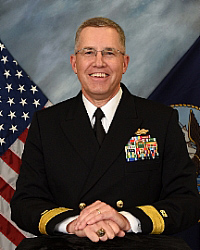Doug Morton has been named as the Associate Vice Chancellor for Facilities, effective November 15, 2016.
 As Associate Vice Chancellor for Facilities, Morton will direct the overall facilities planning, design, construction, operation, and development for the University’s 113,000 acres, which comprises 1,163 buildings that exceed 17 million gross square feet. Morton will provide leadership for facilities services, energy systems, sustainability, fleet management, architectural and design services, infrastructure planning, construction management, mail, and grounds services.
As Associate Vice Chancellor for Facilities, Morton will direct the overall facilities planning, design, construction, operation, and development for the University’s 113,000 acres, which comprises 1,163 buildings that exceed 17 million gross square feet. Morton will provide leadership for facilities services, energy systems, sustainability, fleet management, architectural and design services, infrastructure planning, construction management, mail, and grounds services.
Morton has more than 30 years of experience as a US Navy Civil Engineer Corps Officer spanning engineering, construction and facilities management while leading teams ranging in size from 50 to 13,500. His most recent role was as Director of Energy and Environmental Readiness for the United States Navy where he was responsible for policy and budget development supporting all Navy Energy programs, including energy conservation, research and development, and implementation of new technologies.
Some of Morton’s previous roles include serving as Deputy for Security Cooperation in the US Embassy in Pakistan; Commander of the Naval Facilities Engineering Command Atlantic, overseeing base and facility planning, design engineering, construction, base operating services and maintenance, environmental planning and compliance, utilities, transportation, acquisition and real estate services to the Navy and Marine Corps in the United States, Europe, Africa, and Southwest Asia, and; Chief of Staff, FIRST Naval Construction Division (Seabees), overseeing a 16,000-person military construction organization comprised of 33 units employed worldwide in wartime operations.
These are just a few of the career highlights for the Salisbury native and NC State alumnus. Morton holds a bachelor’s degree in Civil Engineering – Construction from NC State, a master’s degree in civil engineering from The Georgia Institute of Technology, and a master’s degree in national resource strategy from the Industrial College of the Armed Forces.